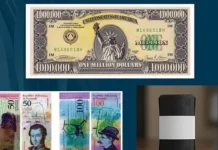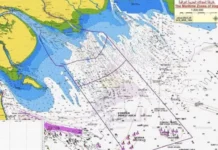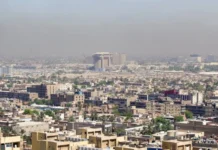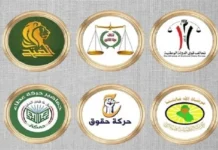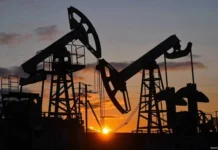Tishwash: US envoy: Iraq is improving day by day and there are no limits to its capabilities
US President Mark Savaya’s envoy sent a message to Iraq.
“I want to make Iraq great again,” Savaya told the Chaldean Press.
He pointed out that he would like to “achieve peace and stability in the country by building strong bridges with the United States”, explaining that “Iraq is improving day by day, without limits to its capabilities”. link
Tishwash: Masrour Barzani: Article 140 of the Constitution must be implemented as it is after the elections
#Article 140
The Prime Minister of the Kurdistan Regional Government, Masrour Barzani, confirmed that the Kurdistan Democratic Party is preparing to implement several goals following the parliamentary elections scheduled in Iraq, noting work to implement Article 140 of the Constitution.
Masrour Barzani said in a speech during his participation in an election carnival dedicated by the Kurdistan Democratic Party to candidates from the Kirkuk and Garmian regions, today, Saturday, October 25, 2025, that “Article 140 of the Constitution must be implemented as it is, and the constitutional provisions and articles must be applied as they are,” adding: “We will no longer accept injustice.” This time we will go to Baghdad to fight for our constitutional rights.
Masrour Barzani stated that “Kirkuk is the heart of Kurdistan”, and “we are ready to sacrifice our blood and souls to return them to the embrace of Kurdistan”, noting that “the people of Kirkuk must know that the one who sacrificed himself for Kirkuk throughout history is the Kurdistan Democratic Party”.
The Prime Minister of the Kurdistan Regional Government and Vice President of the Kurdistan Democratic Party continued, “The injustice practiced against the Kurdistan Region is also practiced against Kirkuk, because Kirkuk is part of Kurdistan”, stressing: “Kirkuk must return, and Khanaqin must return, as well as Makhmouz Zammar and Sinjar” to the embrace of Kurdistan.
Masrour Barzani recalled the statement of the President of the Kurdistan Region, Nechirvan Barzani, that “the party will win a million votes in these elections”, saying: “We are able to obtain a million votes, and we are able to regain Kirkuk and win as the largest political party in Iraq”.
The Prime Minister of the Kurdistan Regional Government touched on the situation in Kirkuk, and the level of services and life there, stressing that “if Kirkuk is run by the Parti, it will become a model of peaceful coexistence on the global level”, and “whoever is loyal to Kirkuk must be characterized by actions and not just carrying slogans.” He called on the people of the governorate to go to the polls and vote for his party, which bears the symbol 275, in the upcoming elections.
Masrour Barzani stressed that Iraq’s stability and development are reflected in Kurdistan, saying: “If security and stability are available in Iraq and its people are able to live in prosperity, Kurdistan will certainly achieve greater progress,” stressing that “we will not allow Iraq to return to centralization and dictatorship,” and “we must head to Baghdad to stand up to the plans being hatched against the Kurdistan Region.” link
************
Tishwash: Iran Declares Major Private Bank Bankrupt Amid Deepening Financial Strain
The collapse of Ayandeh Bank exposes deep cracks in Iran’s financial system, with experts warning more failures could follow amid sanctions and weak oversight.
Iran has declared on Saturday one of its largest private banks, Ayandeh Bank, bankrupt, with its assets absorbed by the state-owned Melli Bank, marking one of the most dramatic collapses in the country’s modern banking history.
The move comes as Tehran grapples with renewed international sanctions and mounting economic instability.
Founded in 2012, Ayandeh Bank once operated 270 branches nationwide—150 of them in Tehran—but had recently been crippled by mounting debt.
According to Iran’s ISNA news agency, the bank’s accumulated losses had reached the equivalent of $5.2 billion, with debts of roughly $2.9 billion.
On Saturday, long lines of anxious depositors formed outside the bank’s shuttered branches in Tehran, with police deployed to maintain order.
State television quoted Melli Bank director Abolfazl Najarzadeh confirming that “the transfer from Ayandeh Bank to Melli Bank is now complete,” assuring customers their deposits would be protected.
Iranian Economy Minister Ali Madanizadeh attempted to calm public fears on Thursday, saying customers “had nothing to worry about.” However, Central Bank officials blamed “bad debts” and risky self-financing projects for the collapse.
Central Bank representative Hamidreza Ghaniabadi told the IRNA news agency that over 90 percent of Ayandeh Bank’s funds were lent to affiliated entities or bank-managed projects that failed to generate returns.
Among its most extravagant ventures was the Iran Mall—one of the world’s largest shopping centers—complete with cinemas, luxury stores, and an ice rink.
The failure of Ayandeh Bank underscores the fragility of Iran’s financial system, heavily burdened by mismanagement, corruption, and years of sanctions that have isolated the country from international markets.
Several other private and semi-state banks—including Sarmayeh, Day, Sepah, Iran Zamin, and Melal—are reportedly facing severe liquidity challenges.
The crisis unfolds against the backdrop of renewed United Nations sanctions, reimposed in September after months of fruitless diplomacy aimed at reviving the 2015 nuclear agreement.
Those sanctions—referred to as a “snapback” mechanism—were reinstated following Israeli and U.S. strikes on Iranian nuclear sites in June, further tightening the economic noose around Tehran.
Economists say the banking sector’s instability reflects broader structural weaknesses in Iran’s economy, where inflation exceeds 40 percent and the national currency continues to plummet against the US dollar.
Observers from the industry warn that more bank failures could follow unless authorities enforce stricter financial oversight and attract foreign investment—both unlikely amid current geopolitical tensions. link

